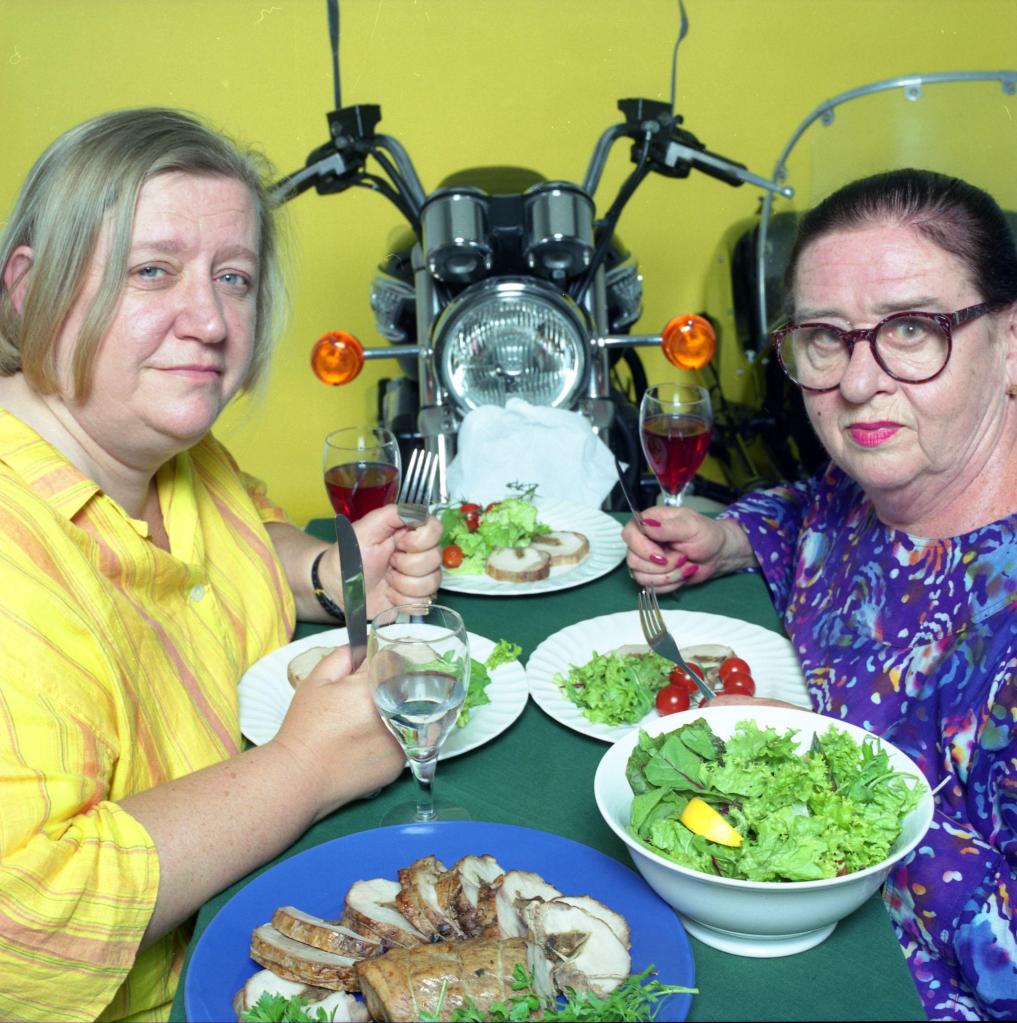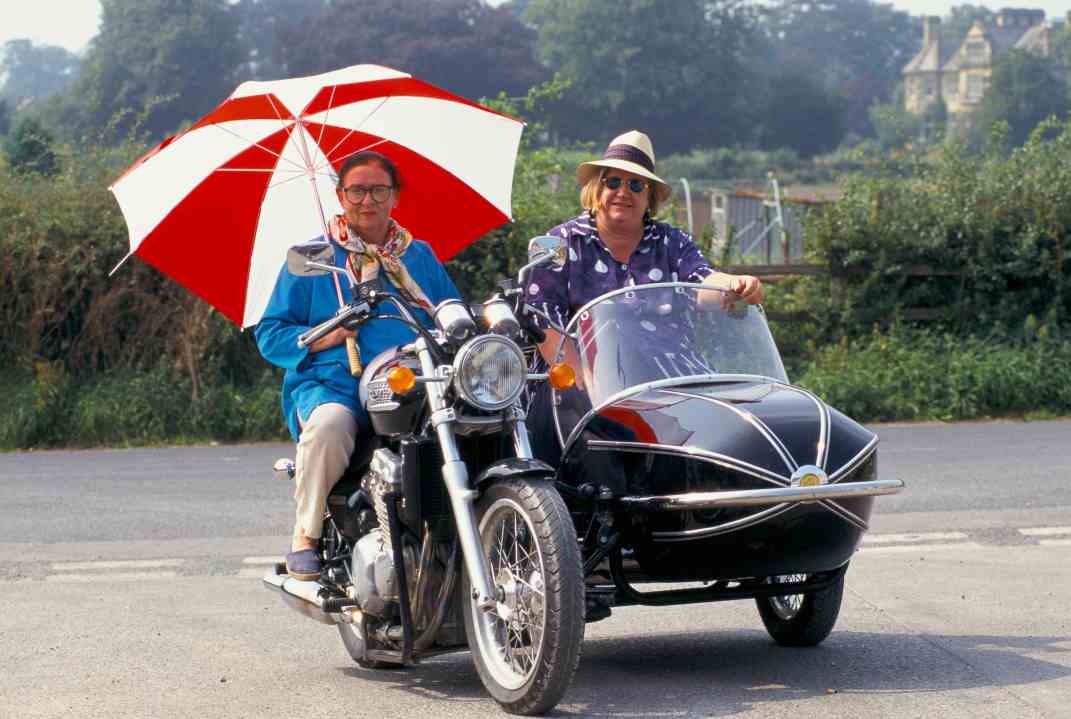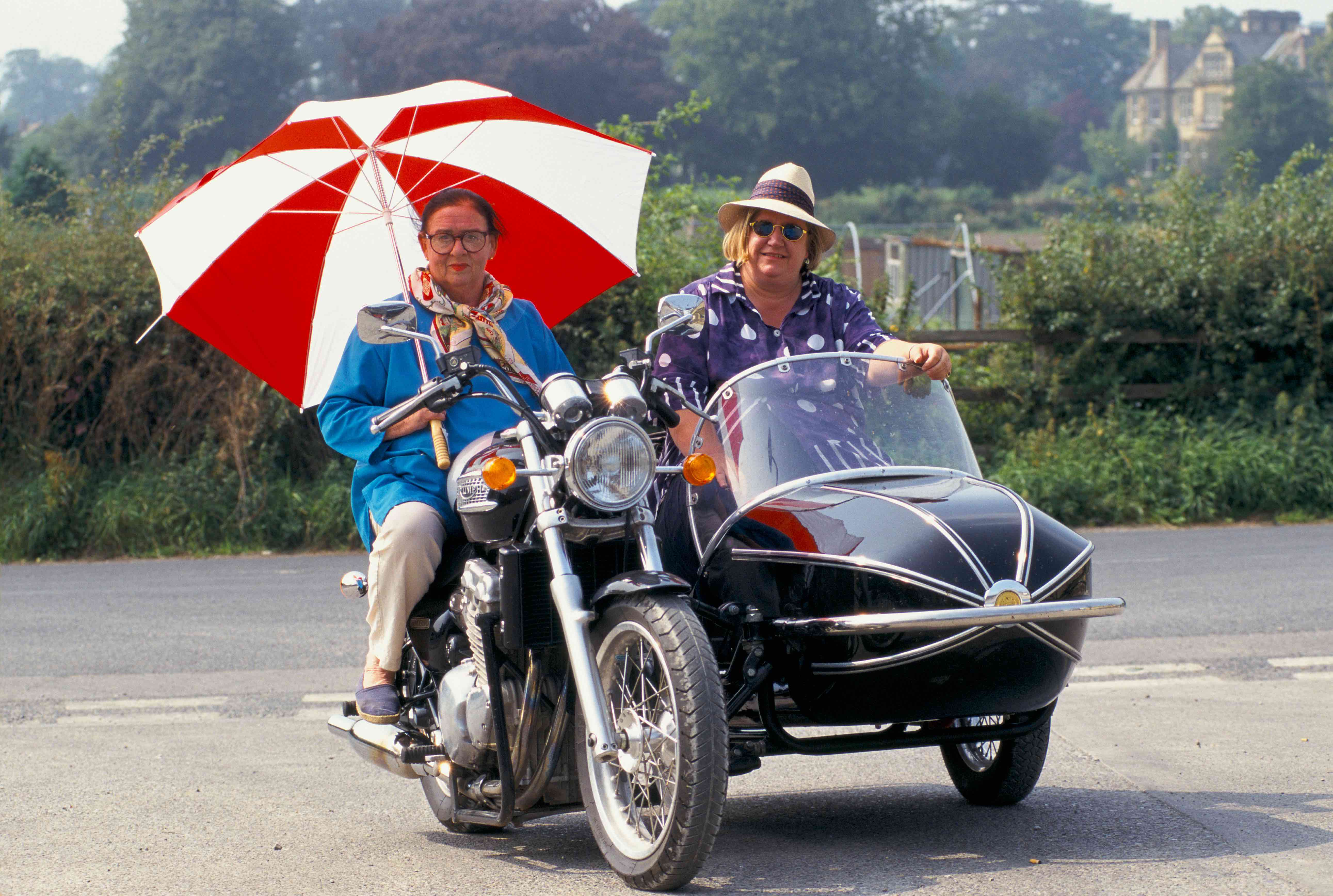They were loud, vivacious and gloriously un-PC. Sometimes they seemed to be learning how to cook as they went, barely one step ahead of the viewer. It didn’t matter. If anything, it only made the BBC’s Two Fat Ladies more watchable. And 25 years on – the last of the two dozen episodes pairing Jennifer Paterson and Clarissa Dickson Wright aired on 28 September 1999 – I miss terribly their jaunty style of cooking, glass in hand.
I don’t think I’m alone. Spectacularly and unexpectedly successful in their lifetimes – 70 million worldwide watched their programme over its four-year run, including many in the US – the internet has allowed them to find fresh admirers since their death. One of the best things about YouTube is preserving such classic content long after it’s vanished from mainstream channels. (Though newer generations have sought to justify their fondness for these bastions of the old school by revelling in their now-fashionable #cottagecore aesthetic or even identifying them as early symbols of ‘body positivity’. They just can’t help themselves.)
I’m fond of Delia Smith but they understood in a way she didn’t that it doesn’t matter a jot whether you use two garlic cloves or three
The duo had the laissez-faire and bonhomie of Keith Floyd. I’m fond of Delia Smith but they understood in a way she didn’t that it doesn’t matter a jot whether you use two garlic cloves or three. As in all good cookery shows they spent as much time outside the kitchen as in it. And they seemed to actually care about the institutions they visited. When the Fat Ladies went off to cook for lawyers or lock keepers, cricketers or choirboys, they appeared invested, and in showing support for these little platoons they contributed small stitches to the fabric of national life. Revving around the British countryside on Jennifer’s Triumph Thunderbird, Clarissa wedged into the sidecar, they flirted with fishermen, bantered with farmers and squabbled amicably with each other.
There was no shortage of differences between them: Jennifer, the devout Catholic, never married or had children and had little romantic life to speak of, while Clarissa delighted in telling people she had once had sex behind the Speaker’s chair in the Commons. But they both shared a love of food and an adventurous spirit. They were also both fat, and under no illusions about it – a no-nonsense honesty that made them likeable. They had little time for any form of diet food. For Jennifer’s last meal she asked for caviar, which loyal Clarissa brought to her. Jennifer died before she could eat it, so Clarissa indulged instead.
They were unapologetically rude about vegetarians, let alone vegans. That is a dangerous thing in today’s world (just ask William Sitwell). The Fat Ladies didn’t care. They didn’t do political correctness. Jennifer had no compunction about wondering aloud: ‘Why are [vegetarians] always so cross? … It’s because they eat the wrong things. They look terrible; they’re usually of a yellow colour.’ Not to be outdone, Clarissa noted she would ‘fight to the death for their right to be vegetarian, but they won’t return the compliment. I hate fascism in any guise’.

They had been discovered by the legendary producer Pat Llewellyn (who went on to discover Jamie Oliver and Gordon Ramsay) precisely because they were larger than life characters, in all senses. Once stopped by a policeman for parking her motorbike on a double yellow, Jennifer declared: ‘I am a spinster of Westminster and you are a mere boy, so off you go on your beat. I am going to Waitrose.’ They had, in other words, what today we like to call ‘authenticity’.
They were part of the establishment. Clarissa’s father was a surgeon to the royal household. Jennifer was even posher. And importantly, both had a hinterland beyond cooking. Clarissa was not only a barrister – at the time the youngest woman ever called to the bar – but a businesswoman, expert butcher and accredited cricket umpire. As for Jennifer, she took up employment at both The Spectator and the Oldie. At The Spectator, she not only wrote a cookery column but served slap-up lunches for the great and good coming through the office. I have been lucky enough to try the editor’s excellent homemade haggis but I imagine Fraser Nelson would have enjoyed as much as anyone Jennifer taking care of office lunch. Perhaps less appreciated might have been her tendency to interrupt then editor Peregrine Worsthorne’s debates to give her two cents: ‘Nonsense Peregrine, you are talking absolute nonsense.’ Her contemporaries remember her ruffling everyone’s hair and calling them ‘coochy coochy’. Jennifer’s Feast Days: Recipes from the Spectator is a delight worthy of being rediscovered.
The personal chemistry between the two was even more important than any alchemy at the stovetop. Since Clarissa’s death a decade ago there have been reports that they were less close than they appeared on the screen. By 1999 when Jennifer died she reportedly could not stand her co-star, bitter over an unpaid debt (Clarissa had lifelong money problems). For her part Clarissa, a former alcoholic like her father, who gave herself quinine poisoning from the vast amounts of tonic consumed with her habit of two bottles of gin a day, resented Jennifer’s late-night boozing with the crew from which she was necessarily excluded. Both were proud, often combative characters and neither gladly suffered fools. Clarissa was nicknamed Krakatoa for her volcanic temper. Jennifer knew how to hold a grudge. So the reported feuds are perhaps little surprise. But I choose not to dwell on them – their on-screen bonhomie was real enough for me.
And in truth I watch them as much for the glimpses of a past, foreign country as for their cooking or camaraderie. They did things differently there. Revisiting those episodes I feel not only a sense of joy, even tranquillity, but also an unmistakable sense of loss for the country left behind. I have felt similar watching Rick Stein’s old programmes, which show him driving around the country in search of his food heroes. But generally I can’t say I am moved in the same way by the crash-bang-wallop of most contemporary cookery shows – frenetic 30-second reels stitched together for 30 mins of programming. 25 years on, the Two Fat Ladies leaves a gaping hole – a mighty fat one, you could say.







Comments